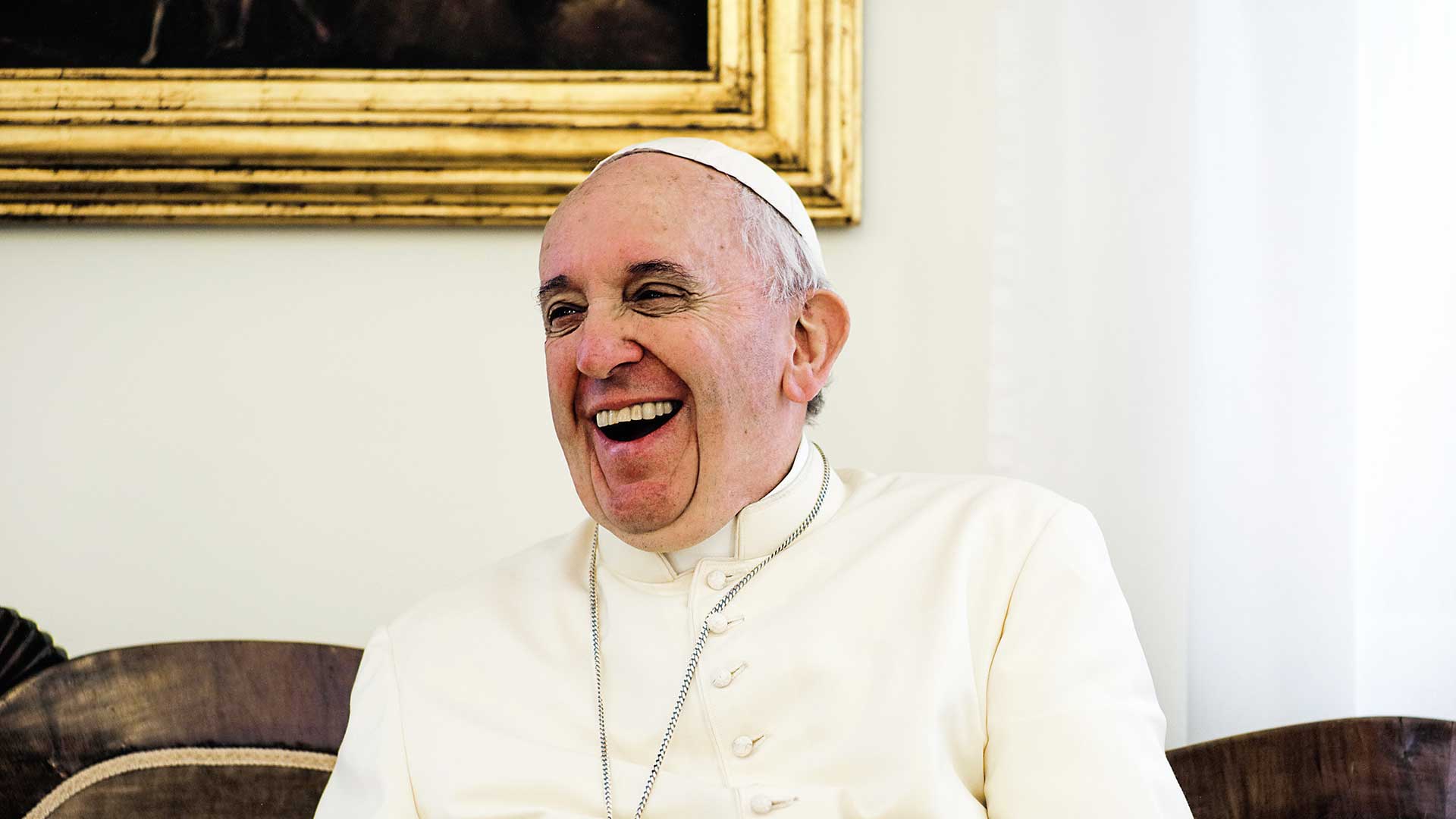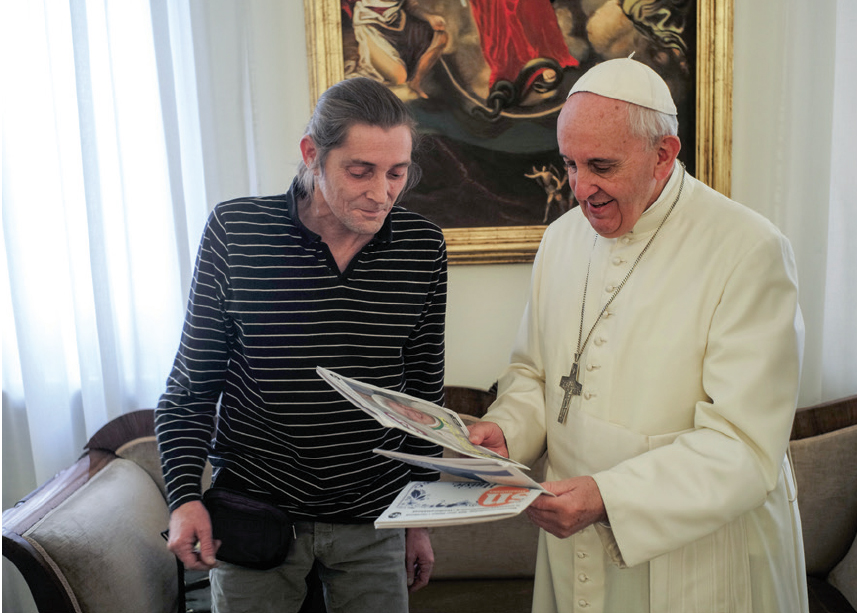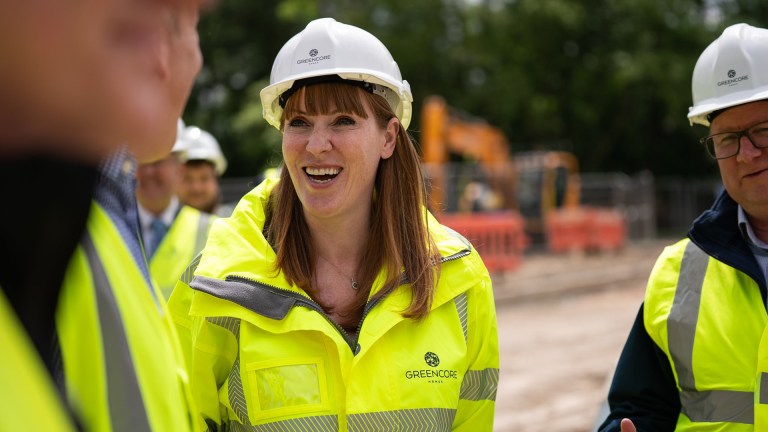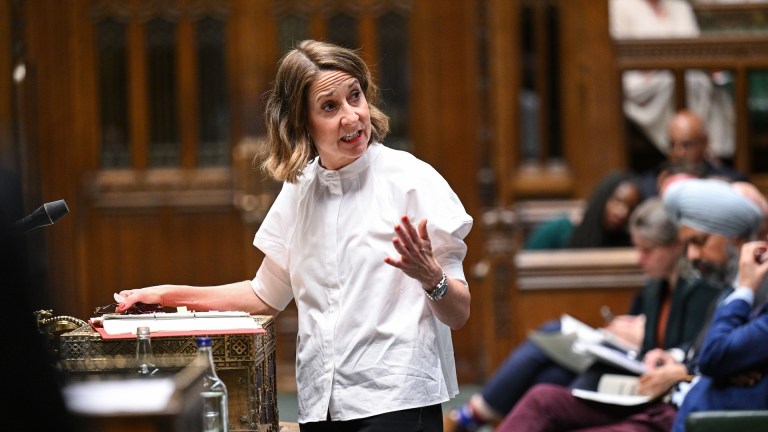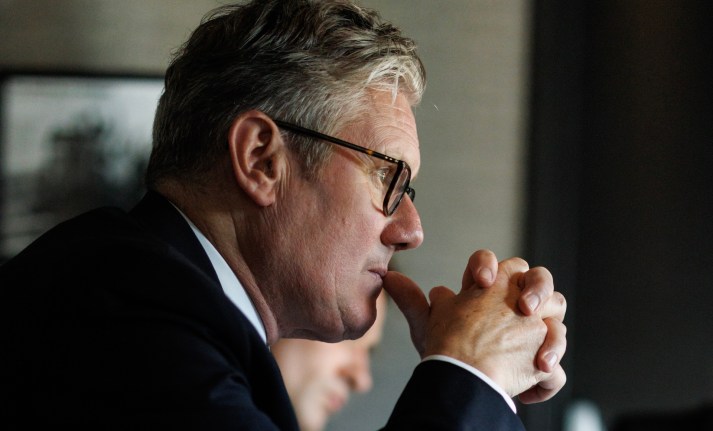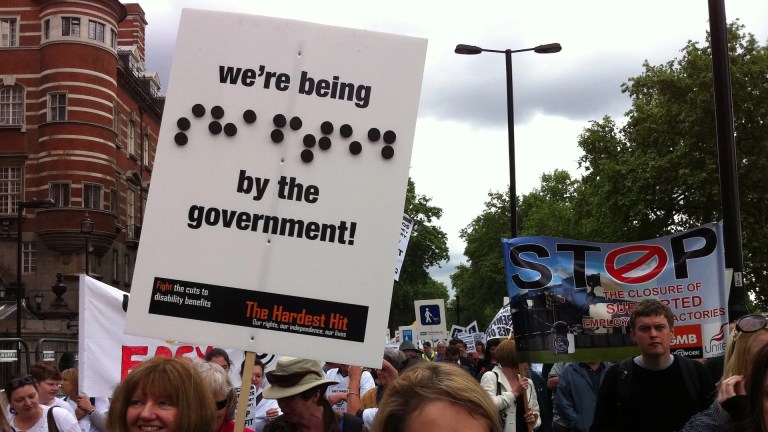From when I was one year old to when I entered the seminary, I always lived on the same street. It was a simple neighbourhood in Buenos Aires, with one and two-storey homes. There was a small square, where we played football. I remember that I used to sneak out of the house to play football with the boys after school. My father worked in a factory that was just a few hundred metres away. He was a bookkeeper. And my grandparents lived within 50 metres. We were all just a few steps from one another. I also remember the names of the people, when as a priest I went to give the sacraments, the final comfort for so many, who called for me and I went, because I loved them. These are the memories that first come to mind.
She gave me a medal of the Sacred Heart of Jesus, which I still carry with me every day
Were you any good at football?
No! In Buenos Aires, those who played football like me are called ‘pata dura’. Which means having two left legs! But I played anyway; often I was the goalkeeper.
How did your personal commitment to the poor begin?
A woman who worked in our home three times a week to help my mother comes to mind. She helped with the laundry, for example. She had two children. They were Italian and had survived the war; they were very poor but they were very good people. And I have never forgotten that woman. Her poverty struck me. We were not rich. Normally we made it to the end of the month but not much more. We didn’t own a car, we didn’t go on vacations or things like that. But she often needed even the most basic items. They didn’t have enough, and so my mother gave her things.
She eventually went back to Italy, and then later she returned to Argentina. I found her again when I was the Archbishop of Buenos Aires, and she was already 90. I was able to assist her until her death at the age of 93. One day, she gave me a medal of the Sacred Heart of Jesus, which I still carry with me every day. This medal – which is also a memento – is very good for me. Would you like to see it? [Pope Francis pulls out the medal, now completely discoloured after years of use.] With this, every day I think of her, and of how she suffered from poverty. And I think of all the others who have suffered. I wear it, and I use it to pray…
Advertising helps fund Big Issue’s mission to end poverty
What is the Church’s message for those who are homeless?
What is the concrete meaning of Christian solidarity for them? Two things come to mind. Jesus came into our world without a home, and he chose poverty. Then, the Church seeks to embrace us all, and says that it is a right to have a roof over your head. Popular movements work toward the three Spanish Ts: trabajo [work], techo [roof] and tierra [land]. The Church teaches that every person has the right to these three Ts.
You often call for heightened attention for the poor and for refugees. Are you not wary that this might lead to an overload in the media?
We all have the temptation – when we have to face an issue that is not pretty, that is difficult to talk about, to say: “Oh, let’s not talk about this any more: this thing is just too difficult.” I understand that the possibility of overload exists but I do not fear it. I must continue to speak about the truth and about the way things are.
It is your duty?
Yes, it is my duty. I feel it inside me. It is not a commandment but as individuals we all must do so.
Advertising helps fund Big Issue’s mission to end poverty
ON POLITICS
Do you not fear that your support for the homeless and other groups plagued by poverty might be exploited politically?
How can the Church speak out so that it has influence and, at the same time, manage to steer clear of political posturing? There are paths that lead to errors at that point. I would like to call attention to two temptations. The Church must speak the truth and also with a testimony: the testimony of poverty. The believer who speaks of poverty or of the homeless but who lives a life of luxury: that will not do. This is the first temptation. The second temptation is making agreements with governments. Certainly agreements can be made but they must be clear agreements, transparent agreements.
For example, we manage this building but the accounts are all closely controlled, in order to avoid corruption. Because the temptation for corruption is always present in public life. Both political and religious. I remember once that I saw, with great pain, when Argentina under the military regime entered into war with Great Britain over the Falkland Islands, that people donated items to charity – and I saw many people, including Catholics, who were responsible for distributing those things to the needy and who instead took those items home for themselves. The danger for corruption is always present.
I meet people, I greet them, and this makes the golden cage a bit less of a cage. But I miss the street
Do you believe that up to now under your pontificate you have been able to achieve a change in mentality, for example in politics?
I am not sure how to respond. I don’t know. I do know that some have said that I was a communist. But that’s a category that is a bit antiquated [he laughs]. Perhaps today we use different words to say that…
Marxist, socialist…
Advertising helps fund Big Issue’s mission to end poverty
They’ve said all those, too.
ON BEING POPE
The homeless have financial problems but they cultivate their own freedom. The Pope has no material needs but he is considered by some to be a prisoner of the Vatican. Do you ever wish you could trade places with the homeless?
I remember the book by Mark Twain, The Prince and the Pauper, when you can eat every day, you have clothes, a bed to sleep in, a desk to work on and nothing is lacking. You also have friends. But Mark Twain’s prince lives in a golden cage.
Do you feel free here at the Vatican?
Two days after having been elected Pope, I went to take possession of the papal apartment in the Apostolic Palace. It is not a luxurious apartment. But it is wide, and large… After having seen the apartment, it seemed to me to be a bit like an upside down funnel, so large but with only one small door. That means being isolated. I thought to myself: I can’t live here, simply for mental health reasons. It would not be good for me. At the beginning, it seemed a bit strange but I asked to stay here, at the Domus Sanctae Marthae. And this is good for me because I feel free here. I eat in the dining hall where all the guests eat. And when I am early, I eat with the staff. I meet people, I greet them, and this makes the golden cage a bit less of a cage. But I miss the street.
We’d like to invite you to come have a pizza with us afterwards. What do you say?
Advertising helps fund Big Issue’s mission to end poverty
I would like to but we wouldn’t be able to manage it. Because the moment I leave here, the people would come to me. When I went out into the city to change the lenses in my glasses, it was seven o’clock in the evening. There was barely anybody in the streets. They drove me to the optician, and as I got out of the car there was a woman who saw me and cried: “It’s the Pope!” And then I was inside, and all the people were outside…
They are not the treasures of the Church but rather the treasures of humanity
Do you miss contact with people?
I don’t miss it because the people come here. Every Wednesday, I am in Saint Peter’s Square for the General Audience, and sometimes I go to one of the local parishes: I am in contact with the people. For example, yesterday [October 26] more than 5,000 gypsies came to the Paul VI Audience Hall.
Did you ever dream of being the Pope, even as a little boy?
No! But I will tell you a secret. When I was little, there weren’t many shops that sold things. What we had was a market, where there was the butcher, the greengrocer, etc. I went with my mother and my grandmother to do the shopping. Once, when I was quite little, about four, someone asked me: “What do you want to be when you grow up?” And I answered: “A butcher!”
You were unknown to many until March 13, 2013. Then, overnight, you became famous throughout the world. How was that experience for you?
Advertising helps fund Big Issue’s mission to end poverty
It happened, and I was not expecting it. But I have not lost peace. And that is a grace from God. I don’t really think about the fact that I am famous. I say to myself: now you have an important position but in 10 years nobody will know you any more [he laughs]. You know, there are two types of fame: the fame of the ‘greats’, those who have done truly great things, such as Madame Curie, and the fame of the vain. But this second type of fame is like a soap bubble.
So, you say – I am here now and I have to do the best that I can and I will continue to work for as long as I can.
Yes.
ON POVERTY AND WEALTH
Your namesake Saint Francis embraced radical poverty and even sold his gospel book. As Pope, and the Bishop of Rome, do you ever feel under pressure to sell the treasures of the Church?
That is an easy question. They are not the treasures of the Church but rather the treasures of humanity. For example, if tomorrow I wanted to auction off Michelangelo’s Pietà, I couldn’t because it is not the property of the Church. It is located in a church but it belongs to all humanity. This is true for all the treasures of the Church. But we have begun to sell the gifts and other things that are given to me. And the proceeds from the sales go to Monsignor Krajewski, my Almoner [Archbishop Konrad Krajewski, who is in charge of distributing money to the poor]. And then there is the lottery. There were some cars that were sold or given away with a lottery, and the proceeds were used for the poor. There are some things that can be sold, and these are sold.
You do realise how the wealth of the Church might create this type of expectation?
Advertising helps fund Big Issue’s mission to end poverty
Yes, if we were to make a catalogue of all the Church’s possessions, we could think: the Church is very rich. But with the Concordat with Italy of 1929 on the Roman Question, the Italian government at the time offered the Church a large Roman park. The Pope at the time, Pius XI, said: No, I only want half a square kilometre, in order to guarantee the Church’s independence. This principle is still valid. Yes, the Church possesses a great deal of real estate assets but we use them to maintain the Church’s structures and to fund the many works carried out in needy countries: hospitals, schools. Yesterday, for example, I had €50,000 sent to the Congo for the construction of three schools in poor villages; education is so important for children. I went to the administration, I made the request and the money was sent.
Holy Father, can you imagine a world without poverty?
I want a world without poverty. We need to fight for that. But I am a believer, and I know that sin is always within us. And there is always human greed, the lack of solidarity, the selfishness which creates poverty. That is why it is difficult for me to imagine a world without poverty. If you think of the children exploited for slave labour or of children exploited for sexual abuse. And another form of exploitation: killing children to remove their organs, organ trafficking. Killing children for their organs is greed. That is why I don’t know whether we will ever have a world without poverty because there is always sin, and it leads to selfishness. But we must always fight… always.
The interview has finished. We thank the Pope. He thanks us as well and says that he enjoyed our chat very much. Then he takes the white envelope that has been next to him on the sofa the whole time and takes out a rosary for each of us. Photos are taken, and then Pope Francis bids us goodbye. As calm and relaxed as when he arrived, he walks out of the door.
Ready for his next appointment.
Courtesy of INSP News Service; INSP.ngo/Straatnieuws. Translated from Italian to English by Translators without Borders
Advertising helps fund Big Issue’s mission to end poverty
